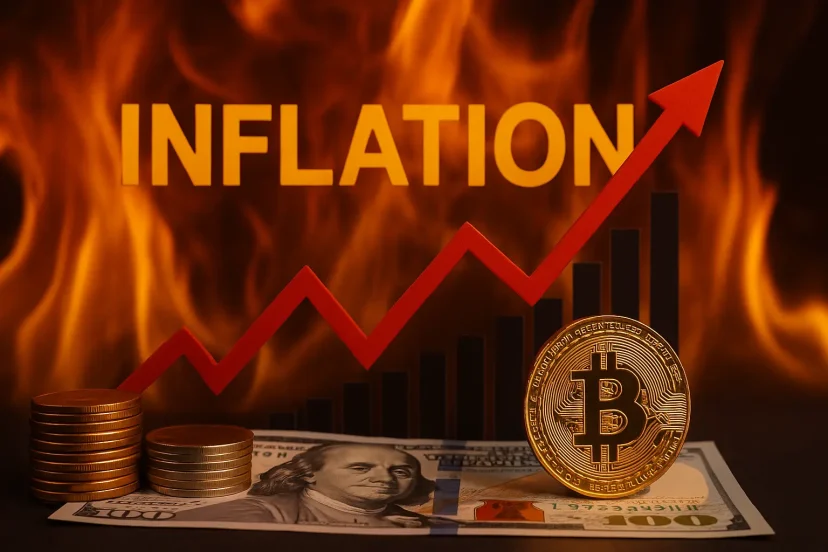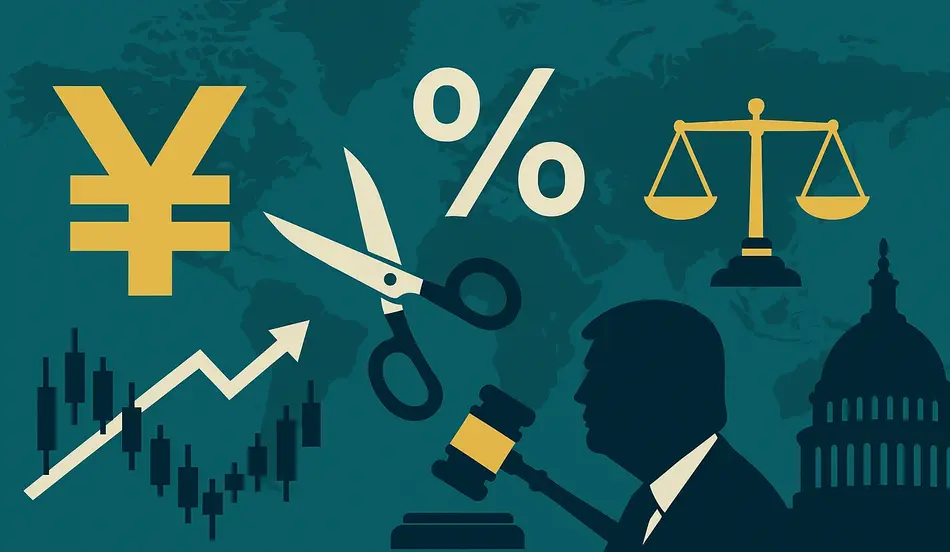U.S. Rate Cuts Impact dominated headlines this week as global markets were rattled by comments from U.S. officials. The remarks touched not only on domestic interest rate policy but also on the Japanese yen and even Department of Justice matters — a scope far wider than what market participants traditionally expect from policymakers.
The statements, delivered by a senior U.S. economic figure, have been described as a sharp departure from protocol. While previous administrations avoided opining on other nations’ monetary policy, the Trump team appears increasingly comfortable blurring those boundaries. Analysts warn that the U.S. Rate Cuts Impact could ripple across currencies, trade, and broader investor confidence.
Table of Contents
A Departure From Norms in U.S. Rate Cuts Impact
“Normally, figures like Bessant don’t comment on foreign monetary policy,” one analyst observed. “But in the context of this administration, it’s no longer surprising. In fact, we might have been more shocked if they had stayed silent.”
Observers say the willingness of U.S. officials to weigh in on global currency markets reflects a new reality: Washington is not shying away from reshaping the global financial conversation. The yen, in particular, strengthened following the comments, though analysts noted a delayed move in Japanese government bond yields. Much of the reaction came hours later, underscoring how the market digested the news in waves.
Hire Smart Amid Global Market Shifts
Post your job on WhatJobs and connect with top candidates—future-proof your workforce as policies and markets evolve.
Post a Job Now →Market Reaction: Yen Strengthens, Yields Edge Higher
The immediate fallout was felt in currency markets, where the Japanese yen appreciated. Government bond yields in Tokyo moved higher as well, though the timing suggested the reaction was not solely tied to the U.S. comments.
“This was a delayed move,” noted market strategist Mark. “Most of the action came long after the remarks were made. But the yen’s response shows just how sensitive global markets are to the U.S. administration’s tone.”
Inflationary Pressures Build
Perhaps the most important theme, however, was not the yen but the inflationary backdrop. Analysts argue that the Treasury and Federal Reserve working in tandem with the Trump administration could fuel an inflationary surge.
“I think it’s absolutely bearish for the dollar,” said Mark. “Everything the Trump administration is doing — undermining institutional credibility, pushing yields lower — is supportive of inflation. That’s negative for the dollar and positive for real assets.”
In practical terms, this environment could mean:
- Rising long-end yields in the bond market.
- Short-term stock gains, as liquidity flows into equities.
- Long-term risks for equities as inflation undercuts value.
- Alternative assets surging, including crypto and commodities.
“Crypto is benefiting because it thrives in an environment of distrust in institutions and inflationary pressure,” Mark added.

Trump, Putin, and the European Angle
Attention is also turning toward the upcoming U.S.–Russia summit, with Europe closely watching for outcomes that could shift geopolitical balance.
Expectations remain muted, but some analysts suggest markets are underestimating the chance of a symbolic “win” for Trump.
“I thought most investors expected no big breakthrough,” said Mark. “But after asking around this morning, I realized the probability of at least a superficial concession from Putin is higher than I assumed.”
Even a cosmetic agreement — one without lasting geopolitical significance — could spark a short-term market rally, particularly in European equities and energy-linked assets.
“Markets don’t need a fair deal; they just need the appearance of progress,” Mark noted.
Why This Matters
The combination of U.S. officials commenting on foreign monetary policy, rising inflationary pressures, and the looming Trump–Putin summit creates a volatile backdrop for global markets.
- For traders, the risk lies in the unpredictability of policy communication.
- For investors, the challenge is distinguishing between short-term noise and structural shifts in inflation and currency trends.
- For policymakers, the erosion of traditional boundaries — such as avoiding commentary on foreign exchange — signals a changing global order.
FAQs: Market Reaction to U.S. Comments
Q1: Why did the yen strengthen after U.S. officials’ comments?
The remarks were seen as interfering in Japan’s monetary space, which added safe-haven appeal to the yen. Investors also interpreted the comments as a signal of broader U.S. willingness to disrupt markets.
Q2: How does this affect inflation expectations in the U.S.?
Analysts believe coordination between the Treasury, the Fed, and the Trump administration is inflationary. It could push bond yields higher and weaken the dollar, while boosting inflation-linked assets.
Q3: What does this mean for investors?
In the short term, stocks may rise due to liquidity and weaker dollar conditions. Longer term, however, inflationary pressures could erode valuations, making real assets and crypto more attractive.
Q4: How does the U.S.–Russia summit tie into this?
While expectations are low, even symbolic concessions between Trump and Putin could create a short-lived market rally, particularly in Europe. Investors are watching closely for signals of geopolitical “wins.”
Bottom Line: From unexpected comments on the yen to growing inflationary risks and an uncertain U.S.–Russia summit, global markets are navigating a highly volatile period shaped by Trump-era unpredictability.




